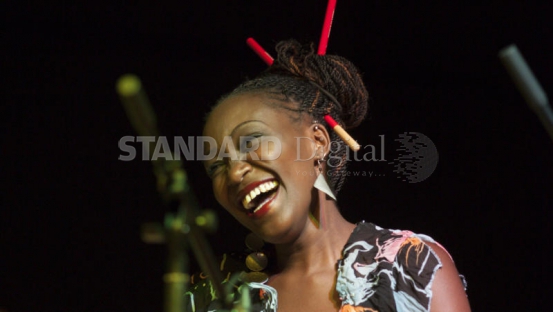
What would you do if you were told that the very thing you were born to do was taboo? How would you react if the world you were so determined to be a part of was just as determined to kick you out and shut the door firmly behind you? Many of us would dust ourselves off and find an alternative occupation, but not 29 year-old Kasiva Mutua. With music flowing through her veins from a young age, she defied the odds and proved that women too can be great drummers. She talks to Hustle about building a career as a percussionist.
When did your love affair with music begin?






